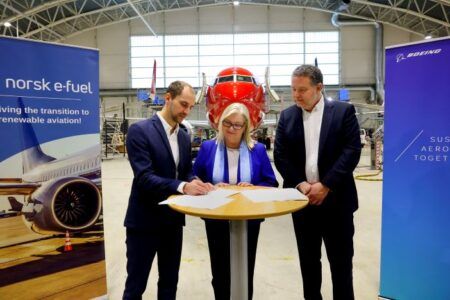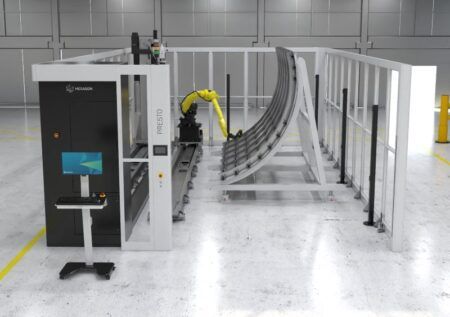An innovative low-carbon-fuel project has taken a significant step forward after successfully producing 1,500 US gallons of jet fuel.
The breakthrough toward developing commercially viable low-carbon fuel is the result of a partnership between Virgin Atlantic and LanzaTech. Since 2011 they have been committed to producing the world’s first jet fuel derived from waste industrial gases from steel mills via a fermentation process.
The Lanzanol was produced in China at the RSB (Roundtable of Sustainable Biomaterials) certified Shougang demonstration facility. The innovative alcohol-to-jet (AtJ) process was developed in collaboration with Pacific Northwest National Lab (PNNL) with support from the US Department of Energy (DOE) and with the help of funding from HSBC.
LanzaTech and Virgin Atlantic are now set to continue to work with Boeing and a host of industry colleagues to complete the additional testing that aircraft and engine manufacturers require before approving the fuel for first use in a commercial aircraft. Assuming all initial approvals are achieved, the innovative LanzaTech jet fuel could be used in a first-of-its-kind proving flight in 2017.
Following a successful ‘proving flight’, the data collected will enable the partnership to seek approval to use the fuel on routine commercial flights. This would also help pave the way for LanzaTech to fund and build its first commercial jet fuel plant to supply fuel to Virgin Atlantic and other airlines. As a UK-based partnership, it is hoped the first LanzaTech jet fuel plant would be based in the UK.




